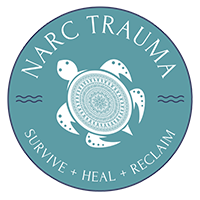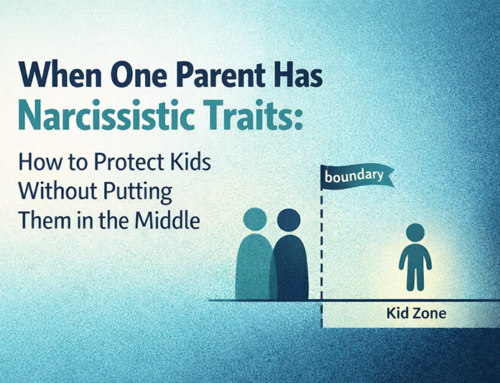When Their Post Split Glow Up Makes You Doubt Yourself

By Brenda Stephens, Licensed Professional Clinical Counselor
When Their Post-Split Glow-Up Makes You Doubt Yourself
When they finally “change” after you are gone
You cut contact or pull way back.
You are exhausted, grieving, trying to remember how to breathe.
Then you hear:
- They finally got a job.
- They are saving money.
- They are posting happy couple photos.
- They seem calm, charming, even “healed.”
- And your stomach drops.
“Wait. So they could get it together. They just would not do it with me.”
If that thought has hit you like a truck, you are not alone. I see this over and over with survivors of narcissistic parents, partners, siblings, friends, and even bosses.
After the Narcissist: Reclaiming Your Story, Your Body, Your Life
In this article, we are going to sit with the specific pain of watching the narcissistic person finally “change” once you are out of the picture, and why it hurts in such a deep and confusing way.
“They changed for everyone else. So I must have been the problem.”
When survivors see the narcissist looking better, they almost never say,
“Good for them.”
What I hear instead:
- “They show up for their new partner, why could they never do that with me?”
- “My parent is suddenly the doting grandparent, where was that when I was a kid?”
- “They keep a job now, but could not pay rent when we lived together.”
- “Maybe I overreacted. Maybe I did give up too soon.”
This is not you being dramatic. It hits several wounds all at once:
- The trauma bond
- Your history of being blamed
- Your fear that you are “too much” or “hard to love”
- The fantasy that they would someday wake up and finally see you
Your brain is trying to write a story that makes the pain make sense. The first draft is usually brutal.
“They changed for others. They refused to change for me. So I must be the common denominator.”
That story feels convincing, but it is not the full truth.
Image management is not the same as growth
Narcissistic individuals are often highly talented performers.
When there is a rupture, a breakup, or someone finally sets a boundary, many of them move into what I call “audition mode.”
- New job or promotion: “See, I am responsible.”
- Saving money: “I am so much more mature now.”
- New relationship, favorite child, or “work spouse”: “Look how loving I am.”
- Social media posts about “healing” and “growth”: “I am the wise one now.”
- You see them on social media talking about narcissistic abuse (as if they weren’t the abusers but you were).
That “glow up” is rarely about repair; it is usually about image.
Protecting their reputation.
Winning the audience.
Rewriting the story so they are either the hero or the wounded main character.
That can include selective good behavior. They might be charming with coworkers, generous with the new partner, or suddenly very engaged with one child or sibling.
Here is the key:
External upgrades do not necessarily mean internal change. Someone can hold a job and still lack empathy. They can save money and still use people. They can read self-help books and still never take real accountability.
Why does it look like they treat others “better” than you
Many survivors tell me:
“I feel like I got the worst of them and everyone else gets the best.”
That often feels true because narcissistic people tend to manage different personas for different audiences.
- The “good parent” for the golden child
- The “fun boss” for coworkers
- The “rescuer” or “martyr” for friends
- The “changed person” for the new partner
You, on the other hand, may have been:
- The scapegoat
- The truth teller
- The partner who kept noticing the cracks
- The adult child who finally said, “No”
They do not punish all relationships equally. They punish those who threaten their narrative. *Read that again, please.*
So you end up holding the worst parts of them, while the outside world praises their charm and “growth.”
You are not imagining this split. It’s crazy-making for a reason.
What your nervous system does with all of this
Your terror is not theoretical. Your body remembers.
When you see them thriving, or hear about how “great” they are doing now, your nervous system can spin out:
- Anxiety and obsessive thinking
- Compulsively checking their social media
- Comparing your current life to their curated highlight reel
- Shame, heaviness, depression, numbness
You may notice thoughts like:
- “Maybe they were not that bad.”
- “Maybe I overreacted.”
- “Maybe I was the abuser.”
- “Maybe I’m the narcissist.”
This does not mean you want to re-enter the relationship. It means your system is trying to resolve intense rejection and unfairness.
You are holding:
The truth of what happened
The loneliness of no longer being in that system
The fear that you were somehow the defective one
That is a lot to carry.
The myths that keep survivors stuck
Let’s name a few lies that show up in this specific pain.
Myth 1: “If they behave better now, I must have been the problem.”
Reality: Narcissistic people choose where to perform and where to unload.
You were often the safe dumping ground, not the cause.
Myth 2: “Other people get the real, good version of them.”
Reality: Most targets get the same cycle, just at different speeds:
idealization, devaluation, discard, or flip in roles. You may simply be further along in the cycle.
Myth 3: “Their success proves my failure.”
Reality: Their job, relationship status, or social media presence is not a report card on your worth, attractiveness, or sanity.
You are not behind because you are still in the messy middle. You are in actual recovery. That often looks much less glamorous than performance mode.
What you do not see behind their “glow up”
- Here is what you usually do not see:
- How do they speak to the new partner when the cameras are off
- The guilt trips, silent treatment, or rage that returns once the honeymoon ends
- The emotional labor others do to keep the peace
- The emotional or financial chaos they hide from public view
People who are truly healing develop more honesty, empathy, and responsibility over time. People who are only managing their image develop better costumes.
You’ve survived a pattern that someone else may be meeting for the first time.
That does not make you disposable. It often means you were the one who finally stopped participating.
Bringing the focus back to you
A few questions to gently come back to yourself:
- How did my body feel around this person most of the time?
Safe, or tense and braced? - Which parts of me had to shrink, fawn, or disappear to stay in that relationship?
- What exactly do I miss: them, or the fantasy that someday they would finally change?
Those questions are not intended to blame you. They are about giving your nervous system a chance to line up with the truth you already know.
Your healing is not about getting them to recognize your value. It is about living a life where you no longer have to be small to survive.
If this is hitting a nerve
If this post feels uncomfortably accurate, here is what I want you to hear clearly:
- You are not crazy.
- You did not imagine the harm.
- You are not hard to love.
- You are reacting in very human ways to a very confusing form of abuse.
Your job now is not to prove your worth by outperforming them. Your job is to build a life that feels safe in your own body, regardless of what story they are telling about themselves.
How to stay connected
If you want more support with this:
If you want support that understands narcissistic systems and the specific pain of narcissistic abuse, you can:
-
- Work with us
Ready to stop people pleasing and start healing. Book an appointment or join a group.
Therapy, groups, and intensives
Contact & waitlist - Trauma Toolbox app
Guided grounding, micro-practices, body resets, and crisis-calming audio in under five minutes.
Get the app - Podcast: Two Queens and a Joker: My Narcissist’s Ex and Me
Real talk about recovery, parenting, and rebuilding a life you actually want.Listen on YouTube
Listen on Spotify
Listen on Apple Podcasts
- Work with us







